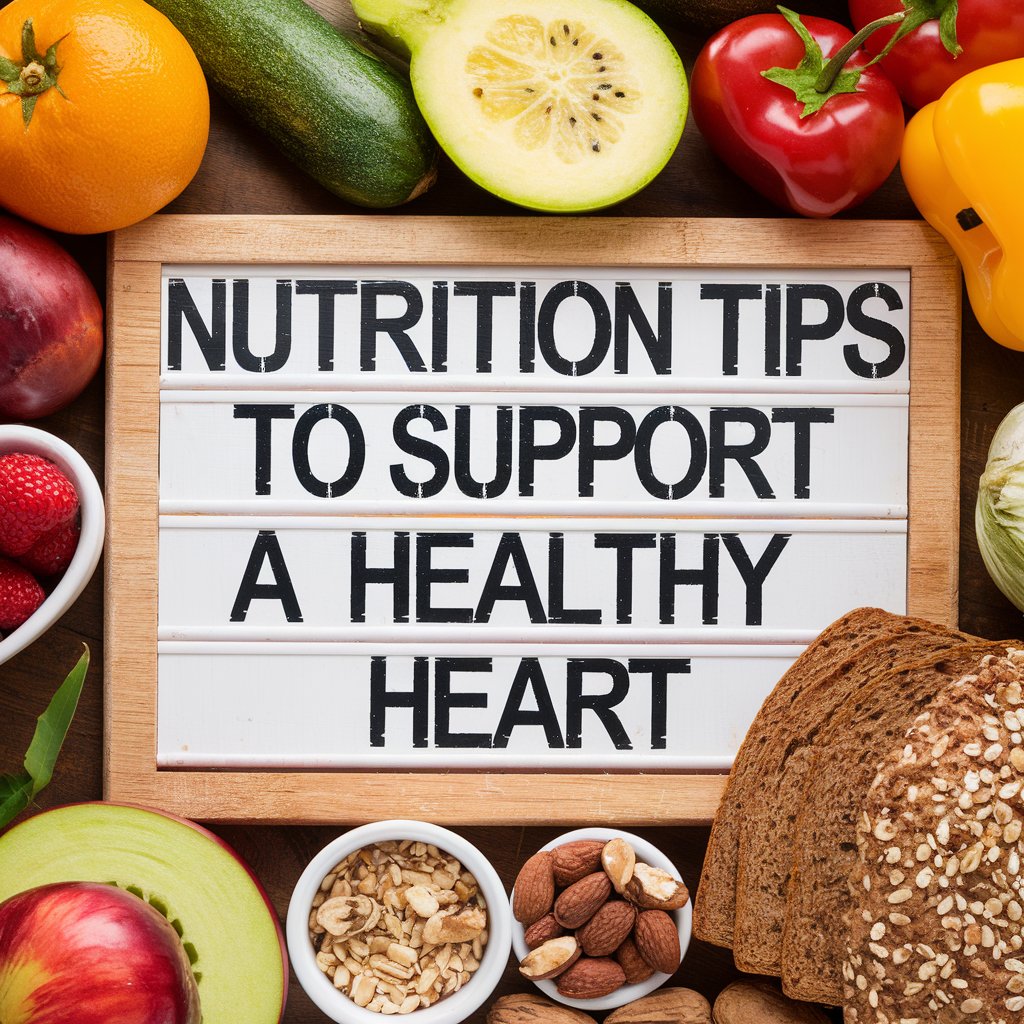In the journey towards a healthy heart, nutrition stands as a cornerstone of well-being. The food we eat plays a pivotal role in shaping the health of our cardiovascular system, impacting everything from blood pressure and cholesterol levels to overall heart function. As such, understanding the influence of diet on heart health and the potential role of supplements in supporting our well-being becomes paramount.
A balanced and nutrient-rich diet may provide the essential vitamins, minerals, and antioxidants necessary to support heart health, while unhealthy eating habits may contribute to an unhealthy cardiovascular system. In this article, we’ll explore the importance of nutrition in maintaining a healthy heart and consider how dietary supplements like Bioglan Medlab may complement our efforts to support overall well-being. Join us as we embark on a journey to discover the power of nutrition in nurturing a strong and resilient heart.
Understanding Heart-Healthy Foods
Maintaining a heart-healthy diet is essential for supporting your cardiovascular system. Incorporating a variety of nutrient-rich foods into your meals may help provide the necessary components to nourish your heart and promote overall well-being. Let’s explore the importance of including fruits, vegetables, whole grains, and lean proteins in your diet, as well as specific nutrients that are important for heart health:
- Fruits and Vegetables: Fruits and vegetables are rich in vitamins, minerals, fibre, and antioxidants, all of which are essential for heart health. They may help lower blood pressure, reduce inflammation, and support cholesterol levels. Aim to include a variety of colourful fruits and vegetables in your diet, such as berries, leafy greens, citrus fruits, and cruciferous vegetables like broccoli and Brussels sprouts.
- Whole Grains: Whole grains are an excellent source of fibre, which may help lower cholesterol levels and support heart health. Choose whole grains such as brown rice, quinoa, oats, barley, and whole wheat bread and pasta over refined grains to reap the full benefits. Whole grains also provide essential nutrients like magnesium and potassium, which support muscle and nervous system health.
- Lean Proteins: Lean proteins, such as poultry, fish, beans, legumes, and tofu, are essential for building and repairing tissues in the body. Opting for lean protein sources helps reduce saturated fat intake.
- Omega-3 Fatty Acids: Omega-3 fatty acids are a type of polyunsaturated fat found in fatty fish, flaxseeds, chia seeds, walnuts, and soybeans. Including omega-3-rich foods in your diet or taking a supplement may be valuable for heart health.
- Fibre: Fibre is vital for maintaining a healthy digestive system and promoting heart health. Soluble fibre, found in fruits, vegetables, legumes, and oats, helps lower cholesterol levels. Aim to consume plenty of fibre-rich foods to support heart health and overall well-being.
- Antioxidants: Antioxidants are compounds found in fruits, vegetables, and other plant-based foods that help protect the body from oxidative stress. Foods rich in antioxidants include berries, dark chocolate, nuts, and leafy greens.
Limiting Unhealthy Choices
In addition to incorporating heart-healthy foods into your diet, it’s equally important to limit the intake of unhealthy choices that may negatively impact heart health. Reducing the consumption of saturated fats, trans fats, cholesterol, and sodium could help support a healthy heart and overall well-being. Here’s why and how to make healthier choices:
- Saturated Fats: Saturated fats, found in high amounts in fatty cuts of meat, full-fat dairy products, and certain processed foods, may raise LDL cholesterol levels. Opt for leaner protein sources, such as poultry, fish, and plant-based proteins like beans and lentils, and choose low-fat or fat-free dairy products to reduce saturated fat intake.
- Trans Fats: Trans fats are artificial fats created through a process called hydrogenation, often found in fried foods, baked goods, and packaged snacks. These fats may raise LDL cholesterol levels and lower HDL cholesterol levels. Check food labels, avoid products that contain partially hydrogenated oils, and opt for healthier cooking methods such as baking, grilling, or steaming instead of frying.
- Cholesterol: While dietary cholesterol found in foods like eggs and shellfish has less of an impact on blood cholesterol levels than saturated and trans fats, it’s still important to moderate intake, especially for people with high cholesterol. Limiting the consumption of high-cholesterol foods and focusing on a balanced diet rich in fruits, vegetables, whole grains, and lean proteins may help support heart health.
- Sodium: High sodium intake may lead to high blood pressure. Processed foods, canned soups, deli meats, and fast food are common sources of excess sodium in the diet. Choose fresh, whole foods whenever possible, and use herbs, spices, and other flavourings to season dishes instead of salt. When dining out, ask for sauces and dressings on the side, and request that dishes be prepared with less salt.
Making healthier choices when dining out or grocery shopping may be easier with a few simple strategies. Look for menu items or packaged foods labelled as low in saturated and trans fats, cholesterol, and sodium. Choose grilled, baked, or steamed dishes instead of fried options, and opt for lean protein sources and plenty of vegetables. When grocery shopping, read food labels carefully to identify hidden sources of unhealthy fats and sodium, and aim to fill your cart with nutrient-rich, whole foods. By being mindful of your choices and prioritising heart-healthy options, you may support your cardiovascular system and overall well-being.
The Role of Supplements
While a balanced diet rich in heart-healthy foods forms the foundation of cardiovascular health, certain supplements may provide additional support in maintaining heart health. Let’s explore the potential benefits of supplements such as fish oil, magnesium, and CoQ10 in supporting heart health, as well as the importance of consulting with a healthcare provider before adding supplements to your routine:
- CoQ10 (Coenzyme Q10): CoQ10 is a powerful antioxidant and coenzyme involved in cellular energy production, particularly in the mitochondria, the energy powerhouse of cells. While the body naturally produces CoQ10, levels may decline with age or certain medical conditions. Supplementing with CoQ10 like in Bioglan Medlab may help support cardiovascular health and function. Some formulations, such as vesugen, are designed to complement these nutrients by supporting overall cardiovascular wellness as part of a balanced supplement routine.
- Vitamin D3: Vitamin D3 has gained attention for its potential supporting role in heart health. Vitamin D3’s influence on calcium metabolism may also play a role in supporting heart health. Incorporating Vitamin D3 supplements into your routine, especially if you have limited sun exposure or dietary sources, may help support overall heart health.
- Magnesium: Magnesium is an essential mineral involved in numerous physiological processes, including supporting artery and blood vessel health. Research suggests that magnesium supports healthy blood vessel function.
- Vitamin E: Vitamin E may support heart health by potentially contributing to the prevention of oxidation of LDL cholesterol. Additionally, Vitamin E may support blood circulation by potentially promoting overall cardiovascular function. Supplementing with Vitamin E, especially if your diet lacks sufficient sources, may help support heart health.
- Fish Oil: Fish oil supplements, rich in omega-3 fatty acids EPA (eicosapentaenoic acid) and DHA (docosahexaenoic acid), have been extensively studied for their cardiovascular benefits. Omega-3 fatty acids are known for their anti-inflammatory properties and maintain healthy blood lipids. Incorporating fish oil supplements into your diet, particularly if you don’t regularly consume fatty fish, may help support cardiovascular health.
While supplements such as fish oil, magnesium, and CoQ10 may offer potential benefits for heart health, it’s essential to consult with a healthcare provider before adding them to your routine. Your healthcare provider may assess your health status, medical history, and dietary intake to determine whether supplements are appropriate for you and recommend the most suitable dosage. Additionally, they may monitor for any potential interactions with medications or existing health conditions and guide making informed choices to support your cardiovascular health.
Lifestyle Changes for a Healthy Heart
In addition to a nutritious diet and, if necessary, supplementation, incorporating lifestyle changes may significantly impact heart health. Regular physical activity, stress management, and adequate sleep are important components of a heart-healthy lifestyle. Let’s delve into the importance of these factors and provide practical tips for integrating them into your daily routine:
- Regular Physical Activity: Engaging in regular physical activity is essential for maintaining cardiovascular health. Exercise helps strengthen the heart muscle, improve circulation and lower blood pressure. Aim for at least 150 minutes of moderate-intensity aerobic exercise, such as brisk walking, cycling, or swimming, each week, along with muscle-strengthening activities on two or more days per week. Find activities you enjoy and make them a priority in your schedule.
- Stress Management: Chronic stress may take a toll on your heart health, contributing to high blood pressure. Incorporating stress management techniques into your daily routine may help promote relaxation and reduce the negative effects of stress on your heart. Practice mindfulness meditation, deep breathing exercises, yoga, or tai chi to calm the mind and body. Find activities that help you unwind and prioritise self-care to support your heart health.
- Adequate Sleep: Quality sleep is essential for overall health and well-being, including heart health. Aim for seven to nine hours of sleep per night and establish a consistent sleep schedule by going to bed and waking up at the same time each day. Create a relaxing bedtime routine, limit screen time before bed, and create a comfortable sleep environment to promote restful sleep.
Conclusion
It is important to prioritise your heart health by making small, sustainable changes to your diet and lifestyle. Whether it’s adding more fruits and vegetables to your meals, incorporating regular physical activity into your routine, or practising stress management techniques, every step towards a healthier heart counts. By taking proactive steps to support heart health, you may enjoy a vibrant and fulfilling life for years to come. Remember, it’s never too late to start investing in your heart health – your heart will thank you for it.






